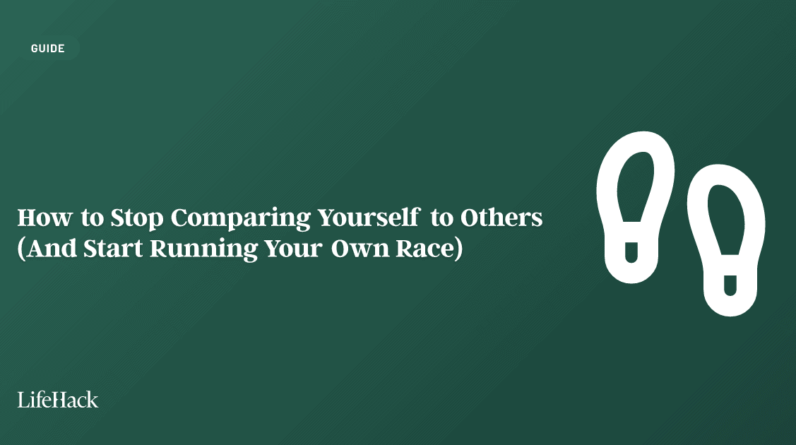
Picture this scene: You’ve just had one too many upsetting developments in your life, and the latest one is the straw that breaks the camel’s back.
Maybe it’s getting chewed out at work when you already feel terrible, perhaps you’ve had a disappointment, or perhaps you’ve some sort of tragedy or problem to work through in your personal life.
Either way, everything feels overwhelming.
You don’t know how to proceed or even if there’s anywhere to go from here.
You just feel like giving up.
Maybe… just maybe… you should ask for help?
You might reject the suggestion immediately, feeling as though asking for help is weak or that it’s burdensome to others. But while asking for help can feel foreign and unknown and maybe make you feel as though you’re abandoning your pride, sometimes, it’s truly better to not do it alone.
Asking for help is something every single person will need to do at some point or another. After all, the wheel of society doesn’t function without a collaborative approach. It also can feel good to vent and gain some perspective from another party.
So, with that in mind, in this article, we’ll discuss:
- why you should ask for help
- when you should do it
- and how you can broach the subject with your loved ones
Let’s dive in!
Why Should You Ask For Help?
Asking for help might seem like a weakness, but in fact, it’s actually a strength. It takes courage to admit that you’re struggling and approach a loved one.
Asking for help can also help you get through a particularly difficult feeling or situation. Whether you just need help with a particular problem or with something more complex, asking for help can guide you through the next part of your life.
It can give you perspective. It can help you find solutions that you might simply not be able to see right now.
We’ve all been there, where we can’t seem to think because our emotions have got the best of us. That’s okay. But there are workarounds, such as reaching out to a friend or loved one you trust who can help you navigate those emotions and move past them.
Asking for help can further teach you to learn from mistakes or bad situations and can help you to become more resilient. Maybe in a similar situation next time, you’ll know exactly what to do—all because you mustered up the courage and called a friend.
Related Article: Mindful Living: 4 Helpful Ways to Calm Your Mind & Keep it From Racing
When Should You Ask For Help?
Essentially, there are four main things that should prompt you to ask for help.
Since everyone is different, you might have some other particular situations in mind.
It’s important to note that these four factors aren’t the only thing to consider when wondering whether you need help. At the end of the day, ask for help when you feel you need it!
If you aren’t sure, refer to these four situations:
1. When You Have Too Much To Deal With
This is especially true if you’re the kind of person who can’t say “no.” If you’ve taken on too much, you might find yourself with far too much on your plate and no idea how to juggle it all.
Life can throw things at us fast and hard, and you can find yourself unable to cope almost without warning.
When you have too much to handle, and can’t cope, this is the time to seek help from people you love and trust. Maybe you might even need to delegate. If not, even just a shoulder to cry on or an ear to vent to can work wonders for our emotional state.
2. When You’ve Made a Mistake
We’re all human, and everyone makes mistakes. However, sometimes we don’t like to admit it—we’ll try and push through a mistake and hope that nobody notices. Maybe we’ll even try to suppress our negative feelings about it, which doesn’t usually end well.
As you can imagine, this isn’t the best way of handling a mistake. Feelings end up bottling up and coming out one way or another. Plus, admitting that you’ve made a mistake and need help to set things right can take a lot of humility and courage.
So, talk it out! Get it off your chest. Brainstorm solutions with a close friend or confidant. You don’t need to deal alone.
Related Article: Here’s Why Your Past Mistakes Don’t Own and Define
3. When You’re Out of Your Depth
When things are too much to handle, you can feel overwhelmed.
Acknowledging that you’re out of your depth is the first step to getting help.
When you decide to get help, make sure you approach people who would be able to handle your particular situation. For example, you could approach a friend who’s been through a similar situation or somebody you know who would be capable of handling it.
4. When You Need Expert Help
Realizing that you don’t actually know what you’re doing—or can’t handle what you’re supposed to be doing—is a nasty feeling, and it’s tempting to try and wing it, or to push through with the hope that everything will be alright.
If you feel that way, stop and think about who you could speak to that would be able to offer expert help or unique insight into your situation.
For example, if you’re suffering a serious mental health crisis, you may need to seek out expert mental health professionals, as well as open up to family and friends. This might sound daunting at first, but you’ll feel better when you do.
How Do You Ask For Help When You Really Need It?
If you’ve decided that you need to ask for help, you need to decide who, when, and where.
The “who” part can be tricky. If certain loved ones have reacted badly when you’ve asked for help before—perhaps being unhelpful, distancing themselves, or being selfish with their time and sympathy—you might want to avoid those particular people.
Choose someone you trust, somebody you love, and someone who loves you in return.
Next, you’ll need to think about timing. Blurting out that you need help as a last-minute thought as the two of you are saying goodbye isn’t a good idea. It’s a good idea to schedule a time to talk, and you may even want to be upfront and say that you have something important to discuss.
Tell them your situation, and be as honest as you can. Frankly, say that you need help, and listen closely to what they say.
How Do You Ask For Help Without Being a Burden?
Most of us worry about being a burden if we ask for help, or worse still, being rejected.
However, a good friend won’t see asking for help as a burden. In fact, many people see asking for help as a sign of strength, trust, and love. You’re showing your friend that you love them, trust them, and you have high respect for them.
However, don’t try to take more than your loved one is ready to give. Other people’s lives aren’t blanks—they have their own problems and pressures to deal with. Try and be as understanding as you can.
Most importantly, don’t expect your friend to completely fix your problems. Dealing with your problems will take time and patience, and you are still the one who should put in most of the effort to set things right.
As Barack Obama has said,
“Don’t be afraid to ask for help when you need it. I do that every day. Asking for help isn’t a sign of weakness, it’s a sign of strength. It shows when you have the courage to admit when you don’t know something.”
Read Next: 70 Highly Inspiring Motivational Quotes to Start Your Week Strong
Editor’s note: This article was originally published Oct 23, 2023 and has been updated to improve reader experience.
Photo by cottonbro studio







